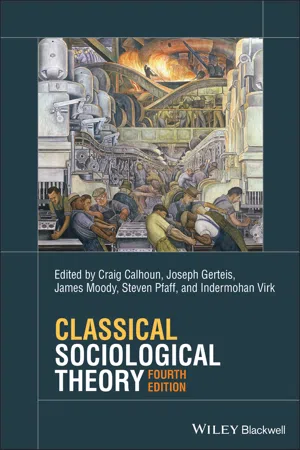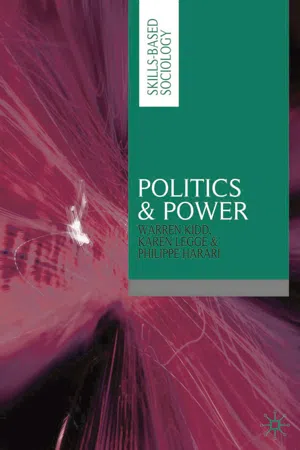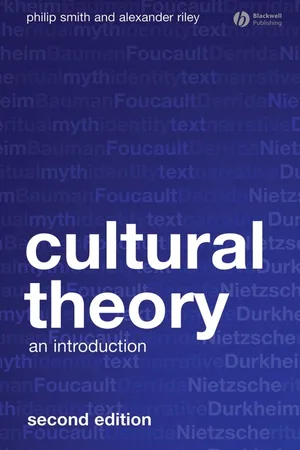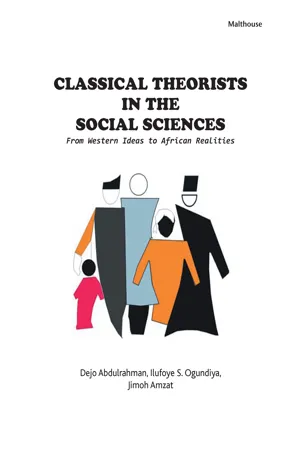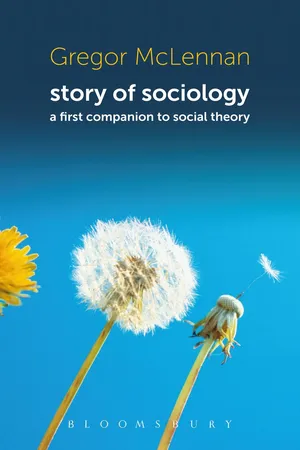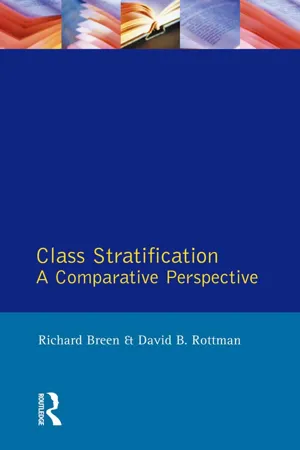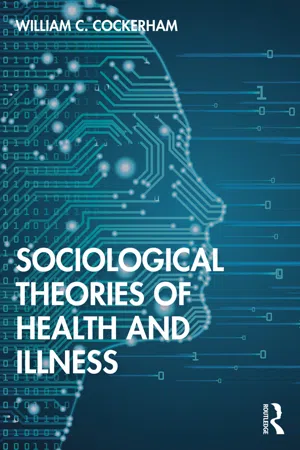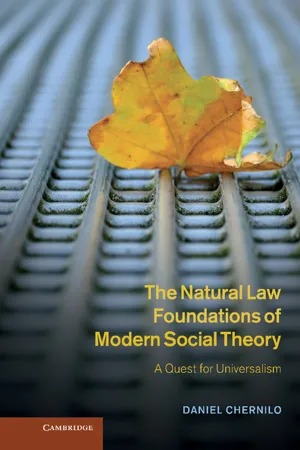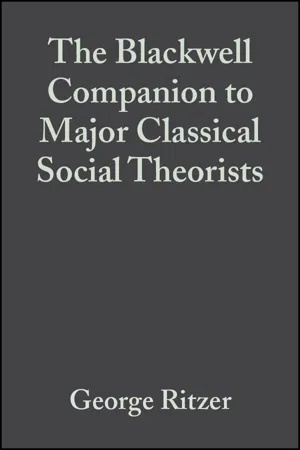Social Sciences
Classical Sociology Theorists
Classical sociology theorists refer to influential thinkers such as Karl Marx, Emile Durkheim, and Max Weber, who laid the foundation for the discipline of sociology. Their theories and perspectives on society, economy, and culture continue to shape sociological inquiry and provide valuable insights into understanding social structures and dynamics.
Written by Perlego with AI-assistance
Related key terms
1 of 5
10 Key excerpts on "Classical Sociology Theorists"
- eBook - PDF
- Craig Calhoun, Joseph Gerteis, James Moody, Steven Pfaff, Indermohan Virk, Craig Calhoun, Joseph Gerteis, James Moody, Steven Pfaff, Indermohan Virk(Authors)
- 2022(Publication Date)
- Wiley-Blackwell(Publisher)
It helps us to locate our personal experiences and shared projects in larger social and historical contexts. As C. Wright Mills put it: “Neither the life of an individual nor the history of a society can be understood without understanding both.” 1 The Idea of ‘Classical’ Theory Examining classical sociological theory is not the same as looking for the ‘founders’ of sociology. 2 August Comte gave the new discipline its name; Herbert Spencer introduced core ideas of structure, function, and social evolution; Lester Frank Ward helped introduced 2 Introduction the new field in the United States; and Robert Park and Albion Small create a disciplinary home at the University of Chicago. They shaped the field. But today their work is read mainly to see its historical importance, not its theoretical significance for current research. This is different for classical theorists like Karl Marx, Max Weber, and W.E.B. Du Bois. Their work not only helped to create sociology; it also informs and stimulates new sociology today. The demarcation between “classical” and “contemporary” sociological theory continually shifts. In the 1930s, for example, the great American sociological theorist Talcott Parsons set out to synthesize what he regarded as crucial in the “classical” tradition. In his view, Max Weber and Emile Durkheim were the most important classics. Each wrote during the late nineteenth and early twentieth centuries. Parsons saw himself as continuing work they had started. Part of what made them classical was precisely the continuing importance their work had for such later analyses. At the time, Parsons saw himself as the new kid on the block, an innovator in his contemporary scene. He continued to produce influential original work until his death in 1979. Today, however, his work seems “classical”. Calling work “classical” means, first of all, that it has stood the test of time and is still significant. - eBook - PDF
- Warren Kidd, Karen Legge, Philippe Harari(Authors)
- 2017(Publication Date)
- Red Globe Press(Publisher)
Interestingly enough, both Comte and Marx were committed to what could variously be called socialism, communism or even revolutionary socialism. Classical sociology and socialism Traditionally, classical sociology and the ideas of the founders themselves have been characterized in the following way: Comte and Durkheim have been seen as theorists of consensus whereas Marx and Weber have been characterized as theorists of conflict. Whereas Durkheim looked at the need to integrate social members into a harmonious and collective culture, Marx and Weber identify how ruling groups use their power to control others in society. Although this distinction is quite useful to help us understand the basic ideas of these classi-cal sociologists, we should also see their ideas as having similarity as well as difference. All the classical founders have what we call today a highly mod-ernist image of society and of sociology – they are all interested in large-scale generalization and in looking at the future direction and shape that social change would take. They also tend to see change as progression (in other words as a march of progress) and in some cases as following inevitable rules. (These ideas have been criticised lately by sociologists describing themselves as postmodernists.) Classical Views on Power and Politics 31 In recent years, for many modern day sociologists, it is a key misunder-standing of classical sociological theory to see Comte and his student Durkheim as right wing, standing for everything opposite to Marx and the left-wing conflict sociologists. Writers such as Pearce (1989) and Gane (1992) have spoken of a radical Durkheimianism – the idea that Durkheim has been misunderstood and mistakenly associated with the ideas of what we call functionalism due to the ways in which he was translated, interpreted and used, by thinkers such as Talcott Parsons. - eBook - ePub
Cultural Theory
An Introduction
- Philip Smith, Alexander Riley(Authors)
- 2011(Publication Date)
- Wiley-Blackwell(Publisher)
CHAPTER ONE Culture in Classical Social TheoryIn a letter of 1675, the scientist Isaac Newton wrote: “If I have seen further it is by standing on the shoulders of giants.” The point he was making was that his own contribution to knowledge would not have been possible without those of his intellectual predecessors. Likewise, contemporary cultural theory has been made possible by significant earlier work. Coming to an understanding of this foundation is therefore a step of great importance. While we could begin this process with a discussion of thinkers extending back through the Enlightenment and on to Ancient Greece, perhaps the most useful place to start is in the body of literature generally thought of as classical social theory. More particularly, we begin with the work of four founding figures in sociology, Marx, Durkheim, Weber, and Simmel, and two other thinkers from roughly the same period, Friedrich Nietzsche and W. E. B. DuBois. While these last two have not traditionally been classified among the founding figures in the emergence of the discipline of sociology, they nonetheless made contributions to the sociological study of culture that have been widely and increasingly recognized in the past few decades. Many current debates are shot through with foundational themes, problems, and perspectives that originate in the works of these six scholars. As thinkers with powerful minds, they provided a set of core concepts and tools that are still serviceable 100 years or more after they were developed. When they are not drawing directly upon them, current authors as likely as not are revising, refining, or critiquing lines of thinking that originated around a century or so ago. We forget history at our peril, and so knowledge of these resources provides an essential starting point and common ground for all cultural theorists.Karl MarxOne of the greatest minds of the Victorian era, Karl Marx is generally thought of as an anticultural theorist. This is certainly the case when we focus on his historical materialism. Such a position is most clearly advocated in his late masterwork Das Kapital (Capital ), the first volume of which was published in 1867 (Marx 1956). Here, he proposed what has become known as the base/superstructure model of society. According to this perspective, the real motor in capitalist society was the mode of production (very roughly, the economy) that was concerned with providing for material needs. He identified as key aspects of this sphere the private ownership of the means of production (e.g., factories, machine technology) and a system of relations of production - eBook - PDF
Classical Theorists in the Social Scienc
From Western Ideas to African Realities
- Dejo Abdulrahman(Author)
- 2023(Publication Date)
- Malthouse Press(Publisher)
13 Classical Sociological Statements A Durkheimian Perspective Abdullahi A.A., Aliyu, T.K & Mahmoud, K. O. Introduction Like other social science disciplines, sociology traces its origin to the eighteenth- century Enlightenments of France, Germany, and Britain, and more importantly the French and Industrial Revolutions. It was in these historical contexts that sociology was first proposed and foundational ideas laid. Thus, in contemporary sociological discourses, a distinction is often drawn between classical and modern sociological theories. Ritzer is one of the pioneer contemporary sociologists who have followed this pattern of writing. In his volumes on sociological theories, Ritzer has attempted to make this sharp contrast between classical and modern theories unlike scholars like Ashley and Orestein (1995) who have mainly focused on the classical sociological statements. Classical sociological theories include the sociological statements of the founding fathers of sociology which laid the foundation for modern or contemporary sociological statements. Prominent among the classical sociologists is Emile Durkheim whose ideas and contributions profoundly influenced the development of sociology as an academic discipline and he is the focus of this chapter. A chapter in this book has been devoted to the works of August Comte. The chapter introduces the reader to the good works or accomplishments of Comte in sociology. The chapter mentions that Comte is the „inventor’, „founder’ or „father’ of sociology owing to the fact that he was the first intellectual gladiator to coin the word sociology. The chapter may have also mentioned that Comte is a pioneer founder of positive paradigm in sociology owing to his optimistic view that the social world or human behaviour and actions can be studied and analysed using scientific methodology commonly used in the natural sciences. - eBook - PDF
Story of Sociology
A First Companion to Social Theory
- Gregor McLennan(Author)
- 2011(Publication Date)
- Bloomsbury Academic(Publisher)
Civilization, Comte announced, has 'under every aspect, made constant progress', but this would be an impossible sentiment for the later trio. Additionally, the earlier writers were philosophical speculators in the main - though we must acknowledge that Spencer pioneered several volumes of empirical materials (collected by assistants) under the attractive title Descriptive Sociology. But Marx, Durkheim and Weber were perhaps more consistently absorbed in the task of grounding their big pictures of the social world in the painstaking study of data and patterns concerning such things as the state of public health, working conditions, suicide, corporate and economic growth, ancient and modern history, the variety of religions and more besides. Let's compare the sociological big pictures of these three classics according to four aspects of social theorizing. (These also guided the discussion in the previous chapter, but only implicitly.) 1 Social change: the development of society, and especially modernity, over time. 2 Social structure: analysis of the most important social elements and relationships. 3 Philosophical preferences: a) 'epistemology' - how theo-rists justify their accounts by reference to ideas about proper knowledge/science, and b) 'ontology' - their assumptions concerning the nature of social existence. 4 Normative stance: their ideological and political inclinations and goals. Marx Marx envisaged the development of history as a sequence of societal types governed by their prevailing modes of production. This idea refers to how societies organize the production and reproduction of their material basis, and for Marx they are most specifically distinguished from one another by the ways in which economic surplus is generated and 'appropriated'. - eBook - ePub
Class Stratification
Comparative Perspectives
- Richard Breen, David B. Rottman(Authors)
- 2014(Publication Date)
- Routledge(Publisher)
CHAPTER 2STRATIFICATION THEORISTS
IntroductionThe study of stratification boasts an enviable pedigree within sociology. Virtually all the central figures in the development of the discipline were concerned to some degree with stratification, and for many it was the primary focus of their work. And today stratification and social class remain the objects of a great deal of theoretical and empirical endeavour on the part of sociologists. Later chapters of this book examine the application of approaches to the study of social class derived from current theorizing. In this chapter we begin to lay the groundwork for that by considering the work of a number of theorists of social stratification, selected on the basis of their relevance to the core issues around which debates in the area currently revolve. Thus we deal first with the so-called ‘classical’ theorists – Marx and Weber – and then with such contemporary writers on the topic of stratification as Michael Burawoy, Anthony Giddens, John Goldthorpe, Frank Parkin, Richard Scase, and Erik Olin Wright.The classical theorists: Karl MarxOne characteristic of late capitalism is the explosion of choice that it offers to the consumer. This phenomenon is rarely better illustrated than in the vast array of books and articles that present, explain and interpret the writings of Karl Marx and, to a lesser extent, Max Weber. We do not wish to widen this wealth of choice by providing a comprehensive review of their work. Rather, our aim is to present a summary of the ideas of Marx and Weber as they have been carried forward to influence contemporary approaches to stratification, and, especially, class. We do this because, to a very considerable degree, these two writers established the context that continues to shape contemporary debate. In particular, we want to draw out two issues that retain particular importance in the study of stratification. These issues were highlighted in Chapter 1 : they are, first, the distinction between what we called an objective and a subjective commonality of position; in other words, the distinction between the fact (recognized by an observer) of a group that shares a common position on one of the bases of social power and the recognition of that fact and its significance by the members of that group themselves. And the second issue concerns how many bases of stratification can be said to exist in society. So in dealing with each issue we will be concerned to show how the broad approaches to stratification adopted by Marx and Weber illustrate the framework that we developed in Chapter 1 - eBook - ePub
- William C Cockerham(Author)
- 2020(Publication Date)
- Routledge(Publisher)
Chapter 4Classical Theory
Durkheim and Weber
A “canon” is a set of exemplary texts that defines a field. The three established canons in sociology are found in the work of Émile Durkheim, Max Weber, and Karl Marx (Connell 1997; Ritzer and Stepnisky 2018; Royce 2015). While there are other candidates from sociology’s classical era, these three have stood the test of time. They did not appear together as the most important canons of sociology in English-language introductory textbooks until the 1970s, but once it happened, their status has continued to the present day (see, for example, Giddens et al. 2018; Henslin 2019; Macionis 2018; Ritzer and Murphy 2019). While there is an inconclusive debate mentioned in the last chapter about who else’s work should be canonized, there is general agreement about these three scholars from sociology’s classical period (Royce 2015). Many classical theorists are, of course, only of historical interest since they no longer apply to our time; however, some of the theories of Durkheim, Weber, and Marx have persisted as authoritative sources for present-day theorizing in medical sociology.As will be seen in later chapters, theory construction in sociology tends to be cumulative and the classics provide building blocks and legitimacy for many current theories (Baert 2007), including those in medical sociology (Cockerham 2013c). As Patrick Baert (2007) points out, sociology takes its founders very seriously. Consequently, theory formation often proceeds in a cumulative fashion with present work building on the past. In this regard, sociology is much like the practice of case law in which the precedence set by prior court decisions is taken into account in determining present-day legal verdicts. Since Talcott Parsons, sociologists in all specialties have used the classics as authoritative foundations for new theories. “Underlying this intellectual genre,” states Baert (2007:121), “is the assumption that the classics need to be consolidated, combined, recycled and built upon—as if sociologists have taken on board Newton’s aphorism that ‘if I have seen farther, it is by standing on the shoulders of giants.’” - eBook - PDF
Bourdieu's Theory of the State
A Critical Introduction
- Steven Loyal(Author)
- 2017(Publication Date)
- Palgrave Macmillan(Publisher)
Economy and Society: An Outline of Interpretive Sociology. 2nd ed. Edited by Guenther Roth. Berkeley, CA: University of California Press, 1978. Volume II, p. 902, 106. 21 Anter, Andreas. Max Weber’s Theory of the State: Origins, Structure, Significance. London: Palgrave, MacMillan, 2014. 22 Weber, Max ‘The objectivity of knowledge in social science and social policy’ in Sam Whimster (ed.) The Essential Weber. London: Routledge, p. 371. 23 M. Weber, Economy and Society, p. 54. In his lecture on ‘Politics as a vocation’ he adds: ‘There is hardly a task which has not been undertaken by some political association at some time or other, but equally there is no task of which it could be said that it is always, far less exclusively, the preserve of those associations which are defined as political (in today’s language: states) or which were the historical predecessors of the modern state’. Weber, Max. 1919 ‘Politics as a vocation’ in Max Weber: Political Writings. Edited by Peter Lassman. Cambridge: Cambridge University Press, 1994, p. 310. 24 Anter, Max Weber’s Theory of the State, p. 46. 3 CLASSICAL AND MODERN THEORIES OF THE STATE 45 Herrschaft combine so that states are intrinsically connected with domina- tion. For Weber, these historically shifting forms of domination tend to persist, structurally crystallising around the economic, cultural and politi- cal dimensions of the social world. Hierarchical forms of social stratifica- tion are expressed in the interdependent conflicts of class, status and party. The manner in which states have acquired obedience thereby constitutes a central concern in his writings. The multiplicity and changing nature of the ends of the state implies that the state can only be defined as a concept in terms of its means, eschewing a systematic outline of its aims and ends other than those broadly political and cultural, and tied to the maintenance of social order. - eBook - PDF
The Natural Law Foundations of Modern Social Theory
A Quest for Universalism
- Daniel Chernilo(Author)
- 2013(Publication Date)
- Cambridge University Press(Publisher)
And to the extent that its substantive results and methodological justifications are always provisional, so are the bases on which universalistic normative claims are derived. Classical social theory’s original universalistic orien- tation developed, and must continue to develop, as a regulative principle of intellectual enquiry. This is why I think it can be referred to as a claim to universalism – universalism remains its key regulative principle, a standard to strive for even as it remains ultimately unachievable (Emmet 1994). The centrality of modernity As we discussed in Chapter 2, Karl Lo ¨with argued that Weber and Marx’s sociology of capitalism was able to decouple, at least partly, the link between modernity and social theory. For Lo ¨with, the ques- tion was not only to grasp what was specific in modern capitalism but also what it was to live a ‘human’ life under the particular conditions of capitalist modernity. Social theory comes then closer to natural law as both traditions seek to grasp fundamental human concerns about the nature of life in common. This can be seen as a logical consequence of the proposition that universalism is social theory’s ultimate guiding principle. Social theory ought to come to terms with the most general aspects of human existence as they necessarily take place within particular socio-cultural and socio-historical contexts. 212 Classical social theory The question for us in this section is to reflect social theory’s alleged as well as real modernist bias (Yack 1997). In his highly influential account, Anthony Giddens put the modernist argument thus: If Renaissance Europe gave rise to a concern with history, it was industrial Europe which provided the conditions for the emergence of sociology . . . the conjunction of events linking the political climate of the French Revolution and the economic changes wrought by the Industrial Revolution provided the context from within which sociology was formed. - George Ritzer(Author)
- 2008(Publication Date)
- Wiley-Blackwell(Publisher)
Watts Miller and Emma Griffiths. 1997. Oxford: Durkheim Press. Further reading Alexander, Jeffrey C. (1983) Theoretical Logic in Sociology, Volume 2. The Antinomies of Classical Thought: Marx and Durkheim . Berkeley and Los Angeles: University of California Press. Alexander, Jeffrey C. (ed.) (1988) Durkheimian Sociology: Cultural Studies . Cambridge: Cambridge University Press. Bellah, Robert N. (ed.) (1973) E Â mile Durkheim: On Morality and Society , translated by Mark Traugott. Chicago and London: University of Chicago Press. Berger, Peter (1967) The Sacred Canopy . New York: Doubleday. Berger, Peter and Luckman, Thomas (1967) The Social Construction of Reality . New York: Doubleday. 236 R obert A lun J ones Besnard, Philippe (ed.) (1983) The Sociological Domain: the Durkheimians and the Founding of French Sociology . Cambridge: Cambridge University Press. Black, Donald (1976) The Behavior of Law . New York: Academic Press. Bloor, David (1982) Durkheim and Mauss Revisited: Classification and the Sociology of Knowledge. Studies in the History and Philosophy of Science , 13, 267±97. Bourdieu, Pierre (1989) La Noblesse d'E Â tat: Grands Corps et Grandes E Â coles . Paris: Minuit. Bourdieu, Pierre and Wacquant, LoõÈc J. D. (1992) An Invitation to Reflexive Sociology . Chicago: University of Chicago Press. Boutroux, E Â mile (1895) Natural Law in Science and Philosophy , translated by Fred Rothwell. London: D. Nutt (1914). Boutroux, E Â mile (1916) The Contingency of the Laws of Nature , translated by Fred Rothwell. Chicago and London: Open Court. Braudel, F. (1949) The Mediterranean and the Mediterranean World in the Age of Philip II . Glasgow: Collins (1966). Bury, J. P. T. (1985) France, 1814±1940 . London: Methuen. Cladis, Mark S. (1992) A Communitarian Defense of Liberalism: E Â mile Durkheim and Contemporary Social Theory . Stanford, CA: Stanford University Press. Clark, T. N.
Index pages curate the most relevant extracts from our library of academic textbooks. They’ve been created using an in-house natural language model (NLM), each adding context and meaning to key research topics.
